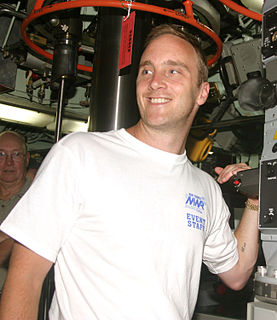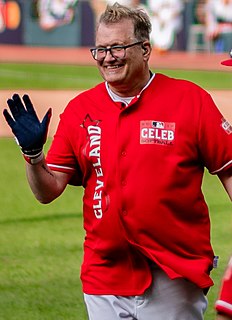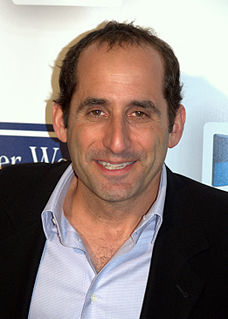A Quote by Jay Mohr
I'm telling you, I could teach at a university, [George] Carlin, a whole semester. The construction and deconstruction of the words, the language, the order.
Quote Topics
Related Quotes
My wife and I have long discussions about [George] Carlin, and we refuse to accept that he died an atheist. It's just, confounding. When I talked to Kelly [George Carlin's daughter] about it, she said that George Carlin once took her at about 12 years old and said, "I've figured it out." And he says it in one of his specials sort of - he goes, "We're all energy and we're all connected. That goldfish you have, you, me, that boot laying in the street, we're all pieces of light to a giant electron.
I'm a big fan of fiction film where you have a story and you have to transform that into a visual language, basically working with actors and also transforming that into how you pronounce that in the visual language of the shots, the construction of the shots and the lighting. All of that appealed to me from the beginning of my career at the university. When I graduated from the university, I wanted to deal mainly with that, with the visual aspect of the movie.
If anyone e-mails you something "by George Carlin," there's a 99 percent chance I did not write it. I didn't write "Paradox Of Our Time." I didn't write "George Carlin On Aging." I didn't write a eulogy for my wife after she died. I didn't write the New Orleans thing. I didn't write "I Am A Bad American." None of them. You know what I've decided to do? I'm going to get a little cheap put-it-together-yourself website called NotMe.com.
I teach a 14-week semester, and one of the things I do when I have to teach literature is, for the first half hour of the class, I have the students write the beginning of a new story every week. At the end of the semester, even if they have learned nothing about literature, at least they'll have 14 beginnings that they can take with them.
One of the reasons I always looked up to [George] Carlin is he looked like your grandfather but, acted like your best friend. Most of the adults in my world were adults and acted like adults and had job-type jobs and bills and pressures and stopped playing a long time ago. And George Carlin was a guy that the more he aged the younger he seemed. It was odd because he was still sagely and wise. But he was such a role model for me.
All sentences of the type 'deconstruction is X' or 'deconstruction is not X', a priori miss the point, which is to say that they are at least false. As you know, one of the principal things at stake in what is called in my texts 'deconstruction', is precisely the delimiting of ontology and above all of the third-person present indicative: S is P.
There is no rigorous and effective deconstruction without the faithful memory of philosophies and literatures, without the respectful and competent reading of texts of the past, as well as singular works of our own time. Deconstruction is also a certain thinking about tradition and context. Mark Taylor evokes this with great clarity in the course of a remarkable introduction. He reconstitutes a set of premises without which no deconstruction could have seen the light of day.































